- Home
- Margaret Pemberton
The Summer Queen Page 4
The Summer Queen Read online
Page 4
That he wasn’t still at Windsor was a body-blow of disappointment. Hiding it, as she did so many of her feelings, May said, ‘Is Trinity an Oxford college?’
‘No, Cambridge. It’s hard to believe, isn’t it? One of the Waleses at university? I’ve never seen any of them with a book in their hands. And that goes for Uncle Wales and Aunt Alix as well.’
That the stylish Prince and Princess of Wales were philistines when it came to the arts, and that their lack of interest in the quality of their children’s education had resulted in their children being seriously under-educated, was something everyone in the family was well aware of. May knew that none of her other cousins would have had to be sent to Lausanne for six months to improve their French, for by the time they were six or seven they had all spoken both French and German fluently, and in many cases – though not hers – Russian as well.
‘Eddy may well begin to enjoy reading, once he’s somewhere that reading isn’t an activity to be scoffed at,’ she said, not seeing why he should be blamed for something that wasn’t his fault. ‘Mama says Eddy and Georgie’s tutor was hopeless and bored them to tears, by only ever giving them things to learn by rote. And although I think Georgie quite enjoyed his years at sea as a naval cadet, I don’t think Eddy did. I think Eddy hated it.’
‘Why? Has he said so?’
‘No. It’s just a feeling I have. I think he’s . . .’ She hesitated, not wanting Ella to laugh. ‘I think he’s a little like my papa. I think he’s artistic.’
‘Then I don’t envy him.’ There was dark humour in Ella’s voice. ‘If he is artistic, he won’t be allowed to give any expression to it at Marlborough House.’ She swung her feet to the floor and changed the subject to one that was troubling her. ‘What did you think of Willy having married plain and pious Dona of Schleswig-Holstein?’
‘It came as a surprise.’ May stood up and slid a hand through the crook of Ella’s arm. ‘Did he do it on the rebound?’
‘Yes. I’d told him, after the letter he sent to me via Alicky when we were last at Osborne, that I was never going to marry him; that I was going to marry Sergei. He said I was the love of his life and that if he couldn’t marry me, it didn’t matter whom he married. And three weeks later his engagement to Dona was announced. I’m just so desperately hoping they will be happy together, because if they aren’t . . . if they aren’t, I shall feel so responsible.’
May’s common sense seldom let her down. ‘There’s no reason why you should feel responsible for anything to do with Willy and Dona’s relationship,’ she said robustly. ‘You never gave him any encouragement, and he should have accepted years ago that you were never going to marry him. If he had, he would most likely have been over you by now. As it is, he isn’t and he’s chosen to marry Dona – who Mama says adores him and will never give Willy the slightest trouble – and his happiness is now in his own hands. It isn’t something you should feel responsible for.’
‘Thank you, May.’ Ella’s relief at May’s response was profound. ‘You are so clear-sighted about things, and there are times when I’m not. Have we to go and find the Edinburghs? As I’m set on Aunt Marie becoming my sister-in-law, I’ve been spending as much time with her as I can. Do you know she smokes Black Russian cigarettes? And that she always makes a conscious effort to wear more jewellery than anyone else? She says that, being both the daughter of the late Tsar and the sister of the present one, it’s her duty to do so.’
They left the room and began clattering down the spiral stone steps.
‘Our little cousins are just as bad,’ Ella continued. ‘When she plays at dressing-up, Missy does so with a Romanov tiara on her head and a rope of Catherine the Great’s black pearls reaching down to her feet.’
At the bottom of the steps, May said, ‘I can understand Cousin Marie having been nicknamed “Missy”. It’s a nice nickname. But how on earth did Victoria Melita get the nickname “Ducky”?’
‘I’ve no idea. Perhaps it’s to do with ducks and water, Uncle Affie being the only one of Granny Queen’s children to be a naval man? I believe it caused quite a stir in the family when he married the then-Tsar’s only surviving daughter. It’s strange, isn’t it, that when Missy and Ducky are only half-Russian, they always seem wholly Russian? The nice thing about it is that their temperaments, like Sergei’s, are too fiery for them ever to be dull.’
May was wary of fiery temperaments and certainly wouldn’t have found one an advantage in a prospective husband, but it didn’t seem the right time to say so.
As they walked towards the Crimson Drawing Room she struggled over whether or not to tell Ella about the suggestion of exile that the Queen had made, and which she might now be making for a second time – only this time to her mother, and with far more force.
She thought of how horrified and sympathetic Ella would be, and decided against it. If it did come to living in exile, she didn’t want sympathy. Sympathy would be more than she could bear. And if she was wrong about the purpose of her mother’s invitation to Windsor, then there was no need for her to let anyone, even Ella, know how shamefully close a call it had been.
In the long Grand Corridor they were nearly knocked over, as Missy and Ducky careened towards them on roller-skates, with one of the Queen’s small terriers barking excitedly at their heels.
‘Oh, goody!’ Six-year-old Ducky swerved to a tottering halt. ‘Alicky’s gone off and left us, and we don’t have anyone to time how fast we are going from one end of the corridor to the other. The footmen are being mean and won’t do it, so will you?’
‘Yes,’ Ella said.
May asked, ‘Where has Alicky gone, Ducky? Do you know?’
‘No. She’s nice for a little while, and then she always falls quiet and goes off on her own.’
May had no intention of leaving Windsor without having spent time with Alicky, and she was just about to tell Ella that she was going off to find her, when her mother entered the far end of the Grand Corridor, looking visibly distressed.
There could only be one reason for her always happy-go-lucky mother to have lost such self-control. Certain of what it was, it felt for a moment to May as if the world had stopped spinning. Sucking air into her lungs, she began running as fast as she could towards her distraught mama.
Chapter Four
JULY 1883, WHITE LODGE
An hour later, on the short carriage ride from Windsor to White Lodge, her mother was still complaining bitterly at what she termed the ‘barbaric’ treatment they were receiving.
‘Although not from Victoria,’ she had said emphatically as, with a handkerchief, she had dried her eyes. ‘Poor, dear Victoria was almost as distressed as I at having to insist we live more cheaply abroad, and she only did so because – and you will hardly believe this, May – because all of my closest family – your maternal grandmama, my sister and my brother – have all insisted that we abandon White Lodge and that we do not even keep our apartment at Kensington Palace. It is they who begged Victoria to intervene in this matter. It is outrageous that family who should be helping us financially have said they will do so no longer, when they know that, of all people, I am the person least prone to extravagance and that I am not at all responsible for our situation. If it hadn’t been for your Teck grandmama having been non-royal, Papa would be heir to the throne of Württemberg now and we would be living in Stuttgart, with no financial difficulties whatsoever.’
She drew in a deep, shuddering breath, but to May’s relief was no longer crying.
‘And to think of all the little economies I have been driven to practise,’ her mother continued indignantly as the carriage rattled through the gates of White Lodge ‘Hoarding pieces of string! Keeping used paper from parcels! And it has been suggested that when we remove ourselves to the continent – which we are to do almost immediately – we occupy a small apartment in Frankfurt. Over my dead body will I live in a small apartment in Frankfurt!’
A few hours later, as a family discussion was being h
eld around the dining table, she said emphatically, ‘Wherever we remove to, it will never be Frankfurt.’
‘Or Neu Strelitz,’ her husband said, not having the slightest desire to be surrounded by his wife’s close relatives for what could well be a permanent stay.
‘Or Stuttgart,’ said Dolly, who hated the rigid formality they had to endure there.
A box of chocolates was conveniently to hand and, helping herself to a strawberry cream, Princess Mary Adelaide said firmly, ‘Wherever we go, it must be somewhere suitably fashionable. I understand from Aunt Marie that Florence is a great favourite with Russian royals.’
The Duke of Teck said encouragingly, ‘And not only with Russians, my pet. Queen Natalie of Serbia spends several months each year in Florence, and Mecklenburg-Strelitz and Württemberg cousins visit the city regularly. We shall not be without society, and there will be museums and galleries to interest May.’
‘Then Florence it is!’ From being in the depths of despair, their mother’s natural optimism was beginning to resurface. ‘And now I must order new gowns and furs. I cannot risk being thought a dowd by Russian royals.’
Later that night May wrote three letters. The first was to Ella:
Dearest Ella,
I have no idea for how much longer you are to be at Windsor, but I doubt Mama and I will be there again before you return to Hesse and there is news I want to tell, before you are told it by others. Mama’s distress this afternoon was because something we have long feared has now become a certainty. White Lodge and our apartment at Kensington Palace are to be given up and we are soon to leave for a new life in Italy. The move is not one of choice, but of a very essential need to live more economically (although my mama, out on another shopping trip, hasn’t grasped this yet). I didn’t say anything this afternoon, as I was hoping another way would be found to resolve Mama and Papa’s unhappy financial situation. When we are settled I will forward you an address so that you can write to me. I do so want to be kept in touch with everyone and with extended family gossip – especially anything to do with your love life and with Vicky’s love life!
Best love, May x
Not wanting Alicky, who was so much younger, to be distressed on her behalf, she wrote:
Dearest Alicky,
Just a little note to tell you some very exciting news. I am shortly going to be leaving dear old England and moving to Italy with my mama and papa and three brothers. (Although only my youngest brother, Alge, will be staying permanently with us in Italy, as my older brothers, Dolly and Frank, attend an English boarding school and will continue doing so.) Italy is going to be a wonderful adventure and, when I have an address, I will make sure I send it to you. I’m so sorry Mama and I had to leave Windsor yesterday before I’d had the chance to meet up with you, but Mama was taken a little unwell and so we had to leave for home in rather a hurry. (And please don’t worry about my mama. She is much better now.)
Much love, your Kindred Spirit, May x
And to Willy she wrote:
Dear Cousin Willy,
You will no doubt soon hear on the grapevine that, in their best interests, my mama and papa have been asked to withdraw to the continent for a period of some years. I, of course, will be going with them and so, as well as being of unequal birth, I will be an exile as well – all of which will make me a double outsider. Not something that anyone else in the family (apart from Alicky) has the faintest perception of. To everyone else I shall, of course, be putting an extremely brave face on things, but it is a welcome relief, in this short letter to you, not to have to do so. Please give my best regards to Dona and to your parents.
With much affection, your Kindred Spirit, Cousin May
The next few weeks were a frenzy of activity, none of which helped May come to terms with the thought of leaving the only two homes she had ever known. Even worse was when the bailiffs came to White Lodge. Her mother avoided the humiliation by fainting upon their arrival. May and her father had no option but to endure it. Just as bad, if not worse, was when it was decided (although not by her mother) that, in order to pay off their creditors, many personally owned contents from Kensington Palace would have to be sold at public auction.
Torturing herself to the utmost, May attended the auction, not showing a flicker of her inner agony as people pawed over and speculated on her family’s much-loved paintings and pieces of furniture. The stuffy smell of the saleroom, the sound of the gavel coming down time and time again, as one item and then another disappeared into the ownership of strangers, was a nightmare she would never, to the end of her very long life, forget. By September, with the agreement that their future living expenses would be funded with money to be paid back when May’s maternal grandmother died and her mother came into her inheritance, they were ready to leave. It was also money that would be under the care of an administrator, and which neither her mother nor her father would have direct access to.
‘Which I think a very great indignity,’ her mother said, hardly able to believe that life could be so unfair. ‘That a granddaughter of King George should have to ask for money that is rightfully hers is a monstrosity. If the dear general public knew of it, there would be an uprising!’
Her mother’s popularity with the British public was such that May thought her mother might not, for once, be exaggerating. In contrast to the Queen, who spent the best part of the year at the remote Balmoral Castle and never dressed in anything but black, Princess Mary Adelaide’s carriage was constantly spotted on London’s streets. Even in the middle of winter she travelled with the window down, so that when she was recognized and people called out a greeting – often referring to her affectionately as ‘Fat Mary’ – she could lean out and, with her hat bedecked with stylish feathers and swathed in furs, respond with one of her life-enhancing smiles and a cheery wave.
There was one last thunderbolt before they were to leave England ignominiously behind them.
‘It has been requested that we travel incognito.’ The Duke of Teck tried to sound as if this was expected and came as no surprise. He failed miserably.
‘Not travel under our own names, Papa?’ May was incredulous. ‘But why? Are we suddenly to be ashamed of them?’ Angry colour spotted her cheeks. ‘If we are not to travel under our own names, what names are we to travel under?’
‘Your Hungarian grandmother was granted the title “Countess of Hohenstein” on her marriage, and that is the name we shall all be travelling under.’
‘So I shall be travelling – and living in Italy − as May Hohenstein?’
‘Not quite, Pussy-cat. When we travel, you won’t be doing so under your family pet name, but under your baptismal name.’
‘And so I will answer to Victoria Mary Hohenstein?’
‘Yes.’ With his eyes not meeting hers, he turned away from her; May knew why. Her dear papa was just as mortified at the subterfuge they would be living under as she was.
It was impossible to keep the news of their enforced exile from the inmates of Marlborough House, and May had to suffer Toria distancing herself from her as if she had a catchable disease, Looloo’s horrified disbelief and Maudie’s tender sympathy. For once, she was grateful that Eddy was still at Sandringham and, for several days, she wondered if she dared to write to him. Not a long letter of course, just a line to say that for the foreseeable future she and her family would be living in Florence.
The fear that if she did write to him, Eddy wouldn’t trouble himself to respond – or that if he did, it wouldn’t be in the manner she was hoping for, but would be in a way that would entirely crush her – ensured that she never got further than writing Dear Cousin Eddy several times, before screwing the sheets of notepaper into a tight ball and, sick at heart, throwing them into a waste-paper basket.
By the time the morning of their departure arrived, May had already said goodbye to their spacious apartment at Kensington Palace. She had done so knowing there was very little likelihood she would ever live in it again. As she had closed
the door of the bedroom she had been born in – a bedroom that had once, before she had ascended the throne, been her Aunt Queen’s bedroom − she had known that she was not only closing a door on a host of happy memories, but on a part of her life that was irrevocably over; and that she had no real idea of what was to come next. Saying goodbye to White Lodge was not quite as traumatic, for it had been decided that her mother was to retain the Lodge in the hope that sometime in the future they would be able to live in it again.
The plan was for them to cross on the night-boat from Dover to Calais, from where they would not travel directly to Florence, but to Rorschach on Lake Constance for a stay with their Württemberg relations.
‘For as Rorschach is en route to Florence, it would be criminal not to accept their kind invitation that we break our journey and stay with them for a few weeks, to “catch our breath”, as your Papa’s great-aunt so kindly puts it,’ her mother had said.
Frank, who never enjoyed staying with his father’s Württemberg relations, had raised his eyes to heaven and sloped off in the company of Maudie, who, at every opportunity, was sticking to him like glue.
May watched bleakly as, in the deepening dusk, their trunks and travelling bags were loaded into the waiting carriages. Maudie, she knew, was heartsick at the prospect of Frank spending holidays from his public school in Florence, and not at White Lodge or Kensington Palace. It meant that whenever he was home she could no longer look forward to seeing him, and for the last few weeks her face had been permanently wan and frequently tear-stained.
May felt great sympathy for her, but she also knew that the sooner Maudie got over her fixation of one day marrying Frank, the better it would be, for it was a daydream that was never likely to happen. For one thing, although Frank liked Maudie and tolerated the way she sought him out and trailed in his wake, he didn’t have a crush on her as she had on him – and even if he’d had a crush on her, marriage would never be on the cards. As a daughter of the Prince of Wales, a suitably prestigious, dynastic marriage would already have been arranged for Maudie and she would have no option but to do her royal duty – duty that had been instilled in her, and in Toria, Looloo, Georgie and Eddy, from birth.

 The Summer Queen
The Summer Queen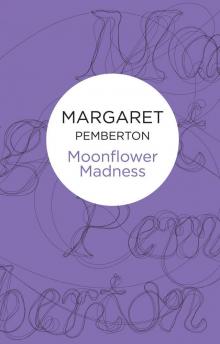 Moonflower Madness
Moonflower Madness The Londoners
The Londoners The Flower Garden
The Flower Garden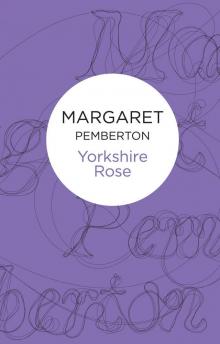 Yorkshire Rose
Yorkshire Rose Vengeance in the Sun
Vengeance in the Sun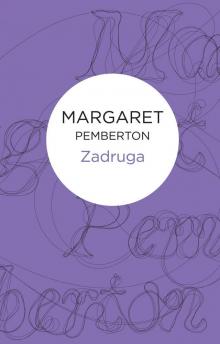 Zadruga
Zadruga Beneath the Cypress Tree
Beneath the Cypress Tree Magnolia Square
Magnolia Square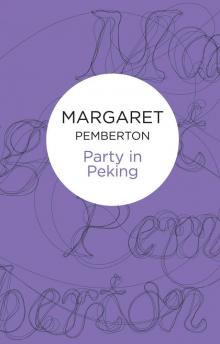 Party in Peking
Party in Peking Lion of Languedoc
Lion of Languedoc Forget-Me-Not Bride
Forget-Me-Not Bride The Guilty Secret
The Guilty Secret Rendezvous With Danger
Rendezvous With Danger A Season of Secrets
A Season of Secrets Silver Shadows, Golden Dreams
Silver Shadows, Golden Dreams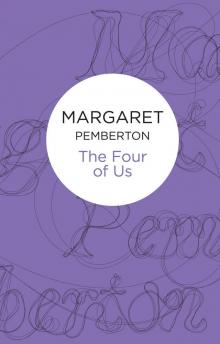 The Four of Us
The Four of Us Devil's Palace
Devil's Palace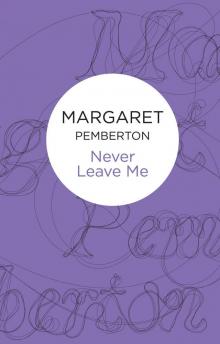 Never Leave Me
Never Leave Me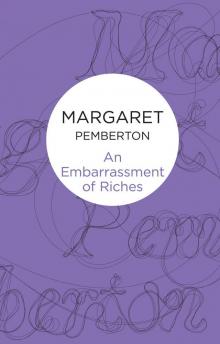 An Embarrassment of Riches
An Embarrassment of Riches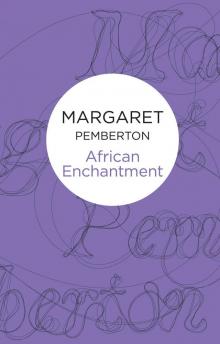 African Enchantment
African Enchantment White Christmas in Saigon
White Christmas in Saigon Coronation Summer
Coronation Summer A Multitude of Sins
A Multitude of Sins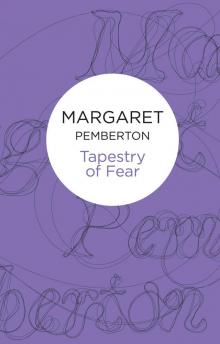 Tapestry of Fear
Tapestry of Fear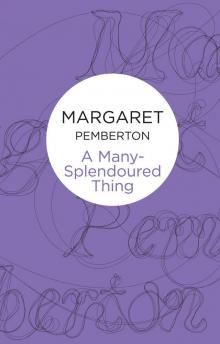 A Many-Splendoured Thing
A Many-Splendoured Thing